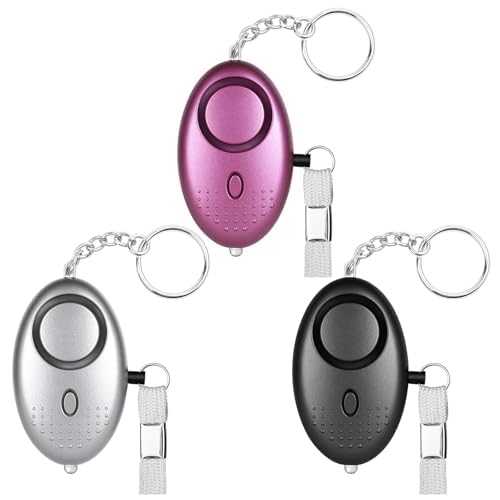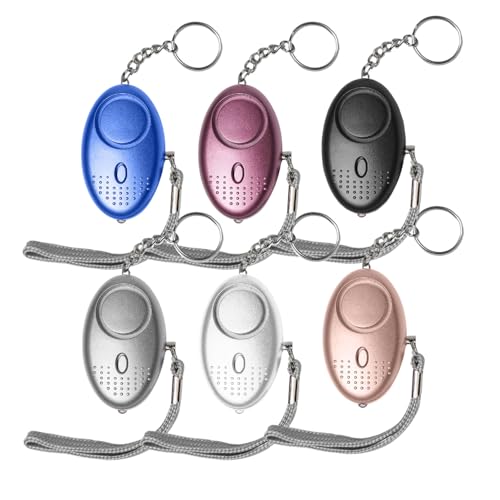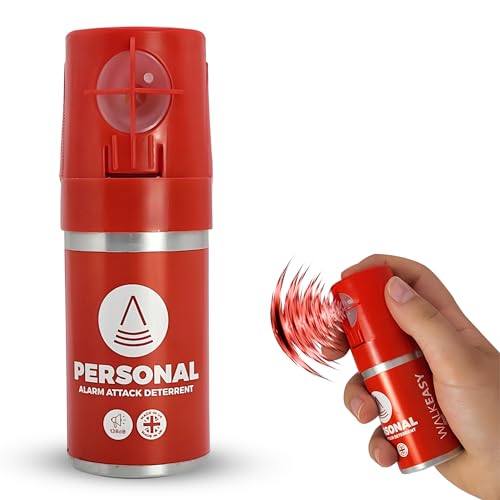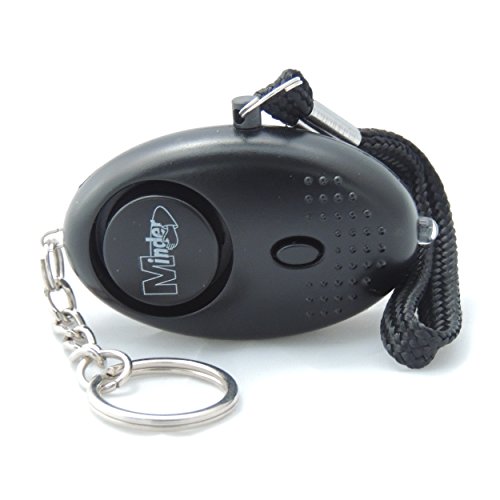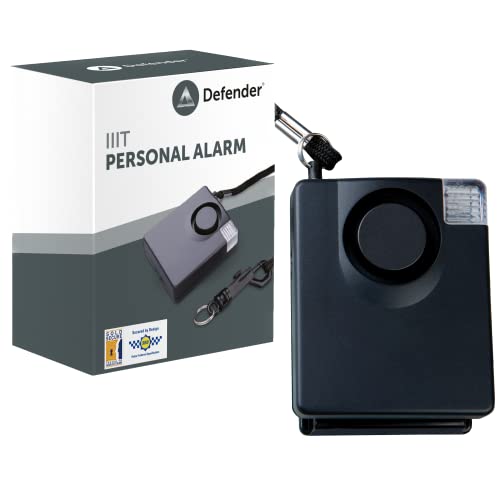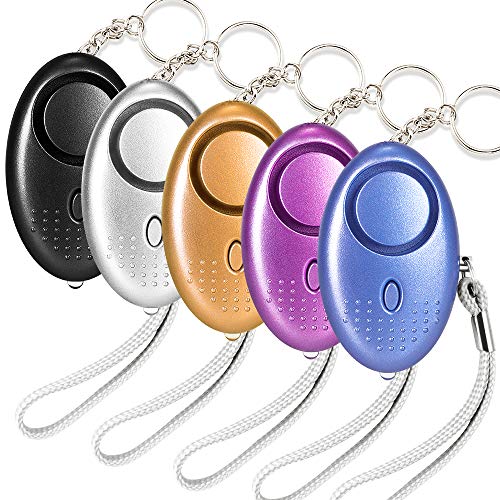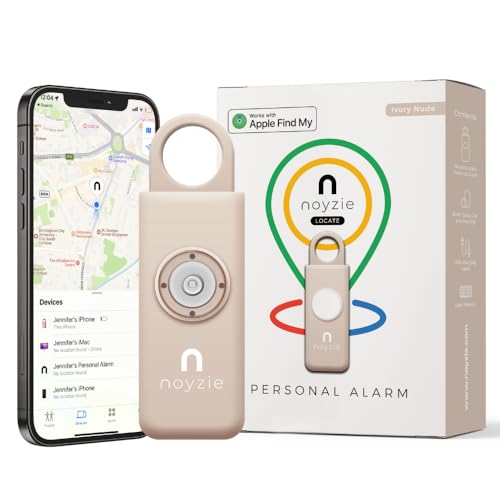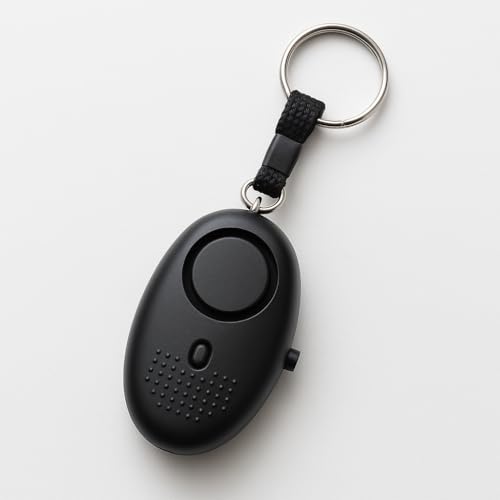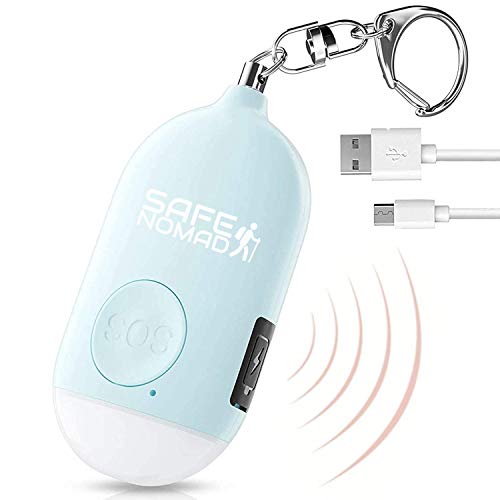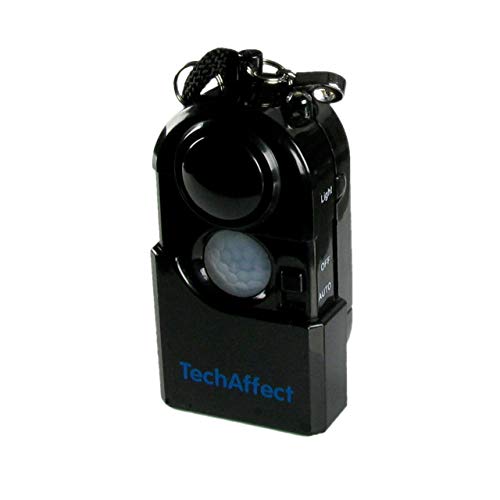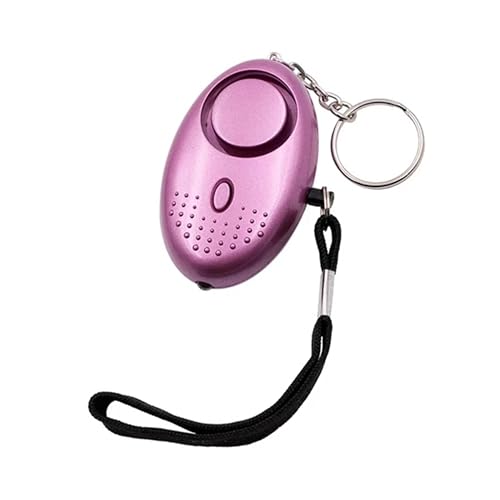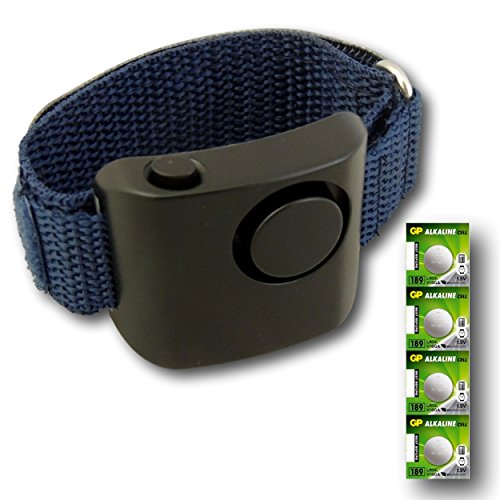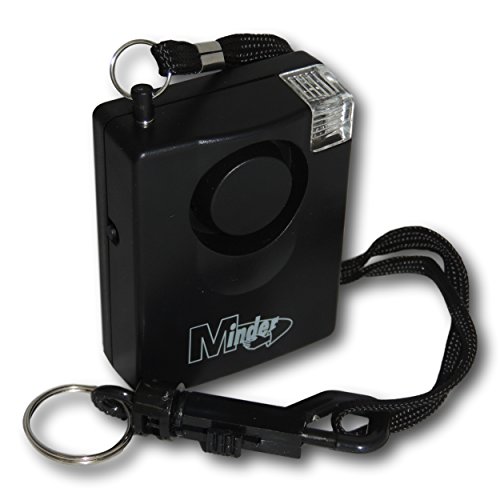
Stay Safe: Police Approved Personal Alarms UK and How to Use Them
Introduction to Personal Alarms
Personal alarms are compact, portable devices designed to emit a loud sound when activated, typically by pulling a pin or pressing a button. Their primary purpose is to deter potential threats and attract attention in emergency situations. In recent years, personal alarms have gained significant traction among individuals seeking to enhance their personal safety, particularly in settings where they may feel vulnerable. These devices have been endorsed by police departments across the UK, leading to the term “police-approved personal alarms the UK” being commonly recognized among the public.
Understanding the functionality of personal alarms is essential to appreciate their value in personal safety. Most alarms operate on similar principles: once activated, they emit a piercing noise, often ranging from 100 to 130 decibels, which can startle an assailant and alert nearby individuals or law enforcement.
This loud alert can give the user critical moments to escape an impending threat or generate enough interest from bystanders to intervene.
With the rise of crime rates in urban settings and increasing awareness of personal safety, these gadgets serve as a straightforward solution for immediate responsiveness in distressing circumstances.
The increasing popularity of police-approved personal alarms in the UK can be attributed to a growing public consciousness about safety.
Many individuals are now seeking proactive measures to protect themselves while navigating various environments. The accessibility and affordability of personal alarms make them a practical addition to daily life, whether one is commuting to work, exercising, or socializing at night. By adopting such safety measures, individuals can contribute to their sense of security, ensuring that they are prepared for any unforeseen events that may arise.
Why Police Endorse Personal Alarms
Police departments across the UK recognize the importance of personal safety and actively endorse the use of personal alarms as a practical tool for self-defence. One of the primary reasons for this endorsement is the potential deterrent effect these alarms can have on potential attackers.
The loud sound emitted by a police-approved personal alarm can startle an assailant, drawing attention to the situation and, in many cases, prompting the perpetrator to flee. This immediate and audible response plays a crucial role in personal safety, ensuring that individuals feel more secure in potentially perilous situations.
Moreover, panic buttons serve as an effective means of alerting authorities or bystanders when someone feels threatened or is in distress. In instances where one may not have the opportunity to make a phone call or physically escape from danger, these devices can bridge the gap.
The activation of a personal alarm can signal for help in a time-sensitive manner, increasing the likelihood of receiving aid when it is needed the most.
An additional factor that strengthens the relationship between police departments and personal alarms is the emphasis on community education regarding safety measures.
Local law enforcement agencies often promote the use of personal alarms during crime prevention initiatives, highlighting their effectiveness as part of an overall personal safety strategy.
By encouraging the public to utilize police-approved personal alarms, police departments enhance the safety of the community, empowering individuals to take proactive measures in their own protection.
Incorporating personal alarms into personal safety practices not only helps individuals feel more secure, but it also fosters a collaborative approach to crime prevention.
This synergy between the public and police illustrates the essential role that such devices play in promoting a safer environment for all members of the community.
Types of Personal Alarms Approved by Police
When it comes to ensuring personal safety, several types of personal alarms have garnered police approval in the UK. These devices serve as effective deterrents against potential threats and can easily be integrated into daily routines. Below, we explore some of the most commonly recognized types of police-approved personal alarms in the UK.
One prominent category is keychain alarms. Compact and lightweight, keychain alarms can be easily attached to car keys or bags, making them highly accessible.
These alarms typically emit a loud sound when activated, often reaching up to 130 decibels. This not only attracts attention but can also deter an attacker.
Due to their simplicity and ease of use, keychain alarms are often the first choice for many individuals looking for an affordable and effective safety solution.
Wearable alarms have gained popularity as well, designed to be worn on the body like a bracelet or pendant. These alarms often feature discreet activation buttons that can be pressed in an emergency to trigger the alarm.
With many models incorporating additional features, such as GPS tracking or smartphone connectivity, wearable alarms offer a modern twist on personal safety. Police recommend these options due to their ability to signal for help in unexpected situations discreetly.
Finally, self-defence alarms represent another key type of police-approved personal alarms in the UK. These alarms are designed with self-defence in mind, combining loud sound emissions with strobe lights to both alert and disorient potential attackers.
This dual functionality enhances the user’s ability to escape from dangerous situations. The effectiveness of self-defence alarms has led to their endorsement by law enforcement agencies, further solidifying their role in personal safety strategies.
In conclusion, the availability of various types of police-approved personal alarms in the UK offers individuals flexible options to enhance their safety.
Each type possesses unique features suited to different scenarios, making it essential to choose a device that best meets one’s personal safety needs.
Top Personal Alarm Recommendations
Choosing the right personal alarm can significantly enhance personal safety, especially when these devices are police approved personal alarms UK. Below is a curated list of some of the best options available in the market, which not only carry the endorsement of law enforcement but also feature essential functionalities aimed at ensuring user safety.
One recommended model is the Smart Personal Alarm. This compact device emits a high-decibel sound of up to 130 dB, making it an effective deterrent against potential threats.
Its lightweight design allows for easy attachment to bags or keychains, and it comes equipped with a built-in LED flashlight for visibility in dark conditions. Priced around £15, this alarm is both affordable and highly functional.
Another option is the Defender Personal Alarm. This alarm is designed for ease of use, featuring a simple pull-pin mechanism. Once activated, it provides a loud sound that can alert nearby individuals and deflect an assailant’s focus.
The Defender model is available for approximately £20 and is recommended for its reliability and effectiveness in emergency situations.
For those seeking added features, the SafeSound Personal Alarm stands out. In addition to its powerful 130 dB alarm, it comes with an SOS signal function and a striking design.
Ideal for women and younger individuals, this alarm is marketed at £25 and is favoured for its multifunctional capabilities, including a stylized design that doesn’t compromise on safety.
Each of these products has garnered praise not only from police officers but also from safety experts. The efficacy and convenience of these police approved personal alarms UK should make them a top consideration for anyone looking to boost their security.
When selecting a personal alarm, it’s essential to think about ease of use, loudness, and additional features that might enhance your safety experience.
How to Properly Use Personal Alarms
Personal alarms are vital safety devices designed to deter potential threats and alert nearby individuals during emergencies. However, knowing how to properly utilize these police approved personal alarms in the UK is crucial for maximizing their effectiveness.
The following steps outline a practical approach to using these devices securely and effectively.
First, familiarize yourself with your personal alarm before you need to use it. Understand how to activate it, typically through a simple pull pin or a button press, depending on the model.
Practising this action ensures you can respond quickly during a stressful situation. Consider testing the alarm in a safe environment to hear its sound level, which is often designed to be loud enough to attract attention.
When carrying your police approved personal alarm, keep it in an easily accessible location, such as a handbag, pocket, or on a keychain.
This positioning allows for swift activation in case of an emergency. Ensure that the device is not muffled by other items, as its sound may be diminishing or obstructed during the activation process.
It is vital to use your personal alarm in situations where you feel threatened or unsafe. This can include scenarios where someone is approaching you in a menacing manner, or if you are in an unfamiliar location that raises alarms.
When you choose to activate the alarm, do so loudly and confidently. The goal is to draw attention to yourself, which can deter potential threats and assist in gaining help from passersby.
Lastly, while a personal alarm is a powerful tool for personal safety, it should be part of a broader strategy. Awareness of your surroundings, avoiding risky situations, and having alternative safety measures in place will enhance your overall safety.
By properly using police approved personal alarms in the UK, you increase not only your safety but also that of those around you.
Integrating Personal Alarms with Other Safety Practices
Personal alarms approved by police in the UK are an effective tool for enhancing personal safety, but their efficacy can be significantly improved when combined with other safety practices.
By integrating personal alarms with techniques such as situational awareness and self-defense strategies, individuals can create a more comprehensive safety approach that is adaptable to various situations.
Situational awareness is the first step in any personal safety strategy. This involves being conscious of one’s surroundings and recognizing potential threats before they escalate.
By continuously assessing your environment, you can identify risk factors as they arise, allowing you to quickly devise an action plan. When carrying a police approved personal alarm, stay alert to signs of trouble, and be prepared to activate the alarm if necessary.
The loud sound of the alarm can deter potential assailants and draw attention to your situation.
Moreover, integrating self-defense techniques can provide an additional layer of security. While personal alarms are pivotal in emergency situations, knowing how to physically defend oneself can be invaluable. Simple self-defense manoeuvres can empower individuals and improve their confidence when navigating uncertain environments. In cases where an alarm may not be readily accessible or effective, having these skills can be crucial for self-preservation.
Additionally, involving trusted friends or family members in your safety planning can offer further reassurance. Sharing your safety strategies, including when and how you would use a police approved personal alarm UK, can create a support network. This ensures that others are aware of your safety measures and can respond appropriately in case of an emergency.
In conclusion, the effectiveness of personal alarms is heightened when used alongside vigilant situational awareness, self-defense skills, and a strong support system. By implementing these interconnected practices, individuals can significantly bolster their personal safety and well-being.
Legal Considerations When Using Personal Alarms
When it comes to personal safety, particularly in the context of police approved personal alarms in the UK, understanding the legal considerations is paramount. Personal alarms are devices designed to emit a loud sound when activated, aimed at deterring potential threats and alerting others to a person’s distress.
However, their use, like any self-defense tool, is governed by local laws and regulations to prevent misuse and protect individual rights.
In most parts of the UK, personal alarms are considered legal and permissible self-defense tools. They are not classified as offensive weapons, which means individuals have the right to carry and use them without special permission.
However, users must refrain from employing these alarms in ways that could be categorized as malicious or disruptive. For instance, falsely triggering an alarm can lead to legal consequences, as it may cause unnecessary panic or divert emergency services.
Additionally, understanding when and how to use police approved personal alarms is crucial. The acceptable use of these devices generally falls under the premise of acting in self-defense or in response to perceived threats.
It is important to note that the threshold for what constitutes a threat can vary, and individuals should clearly understand their rights in these scenarios. The use of personal alarms is generally intended for emergency situations, and it is advisable to reserve activation for scenarios where genuine fear for one’s safety exists.
Moreover, it is beneficial for individuals to familiarize themselves with local guidelines that address the specific use of alarms. These regulations may encompass aspects such as noise levels, permitted times for use, and responsibilities in relation to alerting others in public spaces.
By staying informed and ensuring compliance with the law, individuals can utilize personal alarms effectively while safeguarding their legal rights.
Personal Stories: Real-Life Experiences with Personal Alarms
Personal alarms approved by police have been instrumental in enhancing personal safety for many individuals. These devices serve not only as a precaution but also as a source of empowerment. One user, Sarah, recounts an experience in which she felt threatened while walking home late at night. As she passed a secluded area, she noticed a man following her.
At that moment, she recalled her police approved personal alarm. Without hesitation, she activated it, emitting a loud sound that startled the man and attracted attention from nearby pedestrians. This intervention not only disrupted a potentially dangerous situation but also instilled a sense of confidence in Sarah, realizing she had a tool to protect herself.
Similarly, another individual, Mark, shared his experience while traveling abroad. He felt anxious as he navigated unfamiliar surroundings and was wary of pickpockets.
Carrying a compact personal alarm with him, he felt more secure. On one occasion, when someone approached him too closely, Mark activated his alarm.
The piercing noise drew the attention of locals and quelled the potential threat. Mark’s experience reinforces how objects like police approved personal alarms UK can significantly diminish feelings of vulnerability while traveling.
Collectively, these personal stories underscore that, while personal alarms are practical safety devices, they also foster a sense of assurance. Users often report increased self-esteem and reduced anxiety when utilizing these alarms in precarious situations.
This dual function of personal alarms—serving as a protective tool while also enhancing psychological well-being—illustrates their essential role in modern safety practices. Many individuals feel an improved ability to navigate daily life, knowing they possess a means to summon help swiftly if the need arises.
Conclusion: Taking Safety into Your Own Hands
In today’s world, the importance of personal safety cannot be overstated. The use of police approved personal alarms in the UK serves as a proactive step individuals can take to enhance their security and well-being.
These devices are not merely gadgets; they are a means to empower oneself against potential threats. By investing in a reliable personal alarm that meets all necessary safety standards, individuals can bolster their confidence as they navigate through various environments, whether familiar or new.
It is essential to understand that personal safety is not solely an individual responsibility but a collective one. Each person plays a vital role in creating a safer community.
By equipping oneself with tools such as police approved personal alarms, individuals not only protect themselves but also contribute to the overall safety of those around them. These alarms serve as a deterrent, potentially discouraging would-be assailants and fostering a sense of security in public spaces.
Moreover, using personal alarms effectively means being aware of one’s surroundings and understanding when it is appropriate to activate the device.
Proper education about how and when to use these alarms can make the difference between a close call and a safe escape. Workshops and community programs can serve as excellent platforms to educate individuals on personal safety measures while promoting the use of alarms as a key component of self-defense.
Ultimately, safety should be seen as an achievable goal rather than a constant source of anxiety. Investing in police approved personal alarms in the UK represents a proactive measure in personal safety.
As individuals take steps to protect themselves, they also inspire others to do the same, thus cultivating a culture of awareness and caution within the community.
Taking this initiative is not only about personal vigilance; it is about reinforcing the idea that safety is a shared responsibility and that we must all work together to create secure environments for everyone.
Feel free to comment below on our Police Approved Personal Alarms UK, do you have one? Has it saved you? We would love to know.

